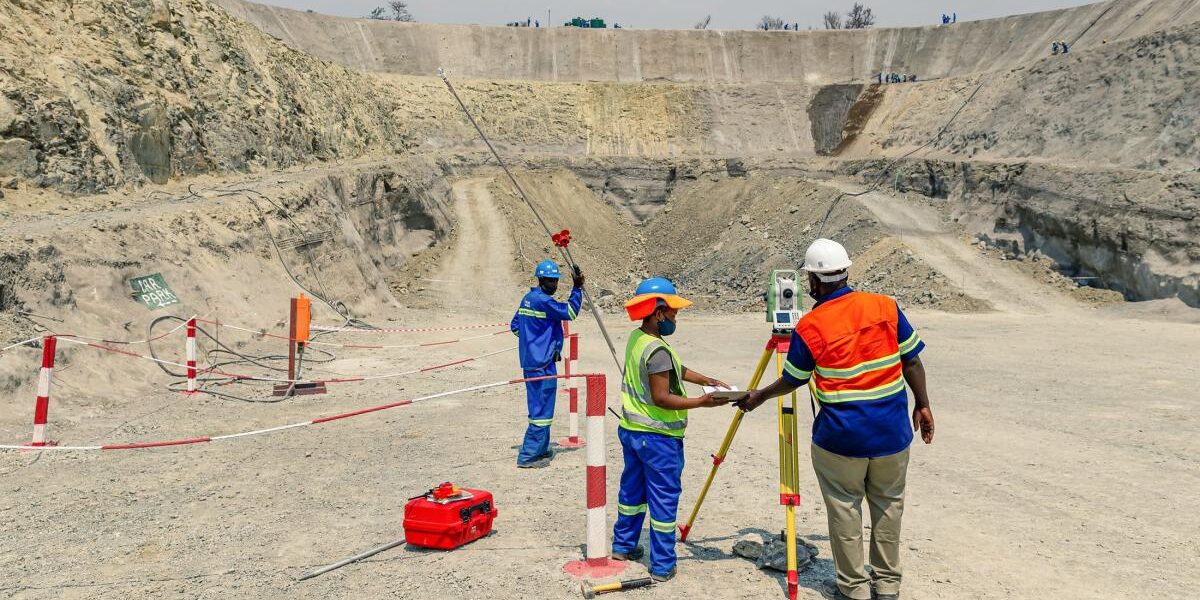Zimbabwe signals state mine investment with Russia platinum exit
Zimbabwe’s state mining vehicle, Kuvimba Mining House Ltd., is taking over the 50% shareholding in a platinum project owned by Russia’s Vi Holding NV and plans to make further mining acquisitions, according to nation’s Treasury.
The exit of Vi Holding from Darwendale Platinum, which would cost about $3 billion to develop and become Zimbabwe’s biggest platinum mine, brings to an end 16-years of Russian involvement with the project. The deposit was taken from South Africa’s Impala Platinum Holdings Ltd. in 2006 by the government of former Zimbabwean President Robert Mugabe and Russian investors were invited to participate.
“We’ve been in discussions with the Russians for some time and Kuvimba Mining is now acquiring those shares and localizing them,” George Guvamatanga, Zimbabwe’s finance permanent secretary, said in an interview on Monday. “That platinum project is a great asset for the country and we are not only focusing on platinum in acquiring shareholding but other assets as well. That is the new thrust of government. There is no need to have our assets registered in foreign countries and that does not apply for platinum only but to also other minerals.”
Zimbabwe’s Treasury oversees Kuvimba. The mines ministry said it wasn’t aware of the change in shareholding.
While giving the government more control of the platinum asset, the exit by the Russian investors also shows the difficulties the country is facing in attracting investment into its mining industry and kick-starting an ailing economy.
Vi Holding’s exit follows sanctions imposed against Russia because of the invasion of Ukraine.
Russia sanctions
The withdrawal is “to create favorable conditions for further development of the project,” Vi Holding said in a response to questions. The decision is also “in connection with the global sanctions of Western countries against Russia, which naturally also applies to Russian investments abroad,” it said.
The project is held by Great Dyke Investments, which was an equally owned venture between Vi and Kuvimba. Development of the mine has stalled because of a lack of funds, while potential buyers of the 860,000 ounces a year of platinum group metals it could produce have been reluctant to enter into purchase agreements with a company with Russian shareholding, people familiar with the situation told Bloomberg last week.
Great Dyke, in a statement, said Vi Holding withdrew from the arrangement in early May “by assigning” its stake to the Zimbabwean company.
Kuvimba Chief Executive Officer Simba Chinyemba asked to see the statement and didn’t comment further. Deputy Mines Minister Polite Kambamura said he was unaware of the change in shareholding.
Zimbabwe’s government says it controls Kuvimba. But its assets, including the stake in Great Dyke, are the same as those owned until at least late 2020 by Sotic International Ltd., a company linked to Kudakwashe Tagwirei, an adviser to Zimbabwean President Emmerson Mnangagwa who is sanctioned by the US and UK governments over corruption allegations.
The government hasn’t said how it acquired the assets or disclosed the identities of the private shareholders who own the 35% of Kuvimba not held by the state.
![]()




